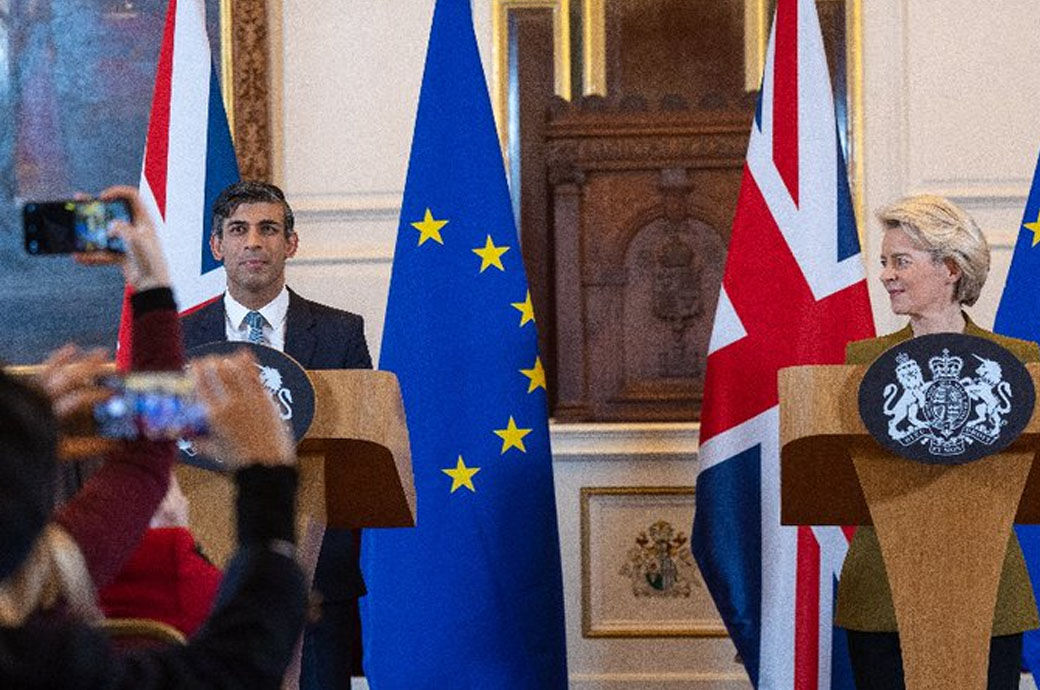
It will protect Northern Ireland’s place within the British Union and restore the balance of the Belfast (Good Friday) Agreement in all its dimensions by replacing swathes of European Union (EU) laws with UK laws, the government said in a release.
It delivers free-flowing trade in goods between Great Britain and Northern Ireland by removing any sense of the border in the Irish Sea for goods staying within the United Kingdom. These goods will travel as normal through a new green lane without red tape or unnecessary checks, with the only checks remaining designed to prevent smuggling or crime.
The agreement rewrites the treaty text with a new Stormont Brake, which means the United Kingdom can veto new EU goods laws if they are not supported by both communities in Northern Ireland, which goes far beyond previous agreements or discussions on the old protocol.
“It’s about stability in Northern Ireland. It’s about real people and real businesses. It’s about showing that our Union, that has lasted for centuries, can and will endure,” Sunak said.
A new green lane (the UK internal market scheme) means traders moving goods destined for Northern Ireland will be freed of unnecessary paperwork, checks and duties, using only ordinary commercial information rather than burdensome customs bureaucracy or complex certification requirements for agri-food.
The same type of standard commercial information used when moving goods from Birmingham to the Isle of Wight will be used Birmingham to Belfast. All goods destined for the EU will use the red lane.
All requirements have been scrapped for trade from Northern Ireland to Great Britain on a permanent basis, including the requirement for export declarations.
Parcels from people or businesses in Great Britain can now be sent to friends, family, and consumers in Northern Ireland as they are today, without customs declarations, processes or extra costs under the old protocol. Parcels sent from businesses to businesses will travel via the green lane.
Fibre2Fashion News Desk (DS)